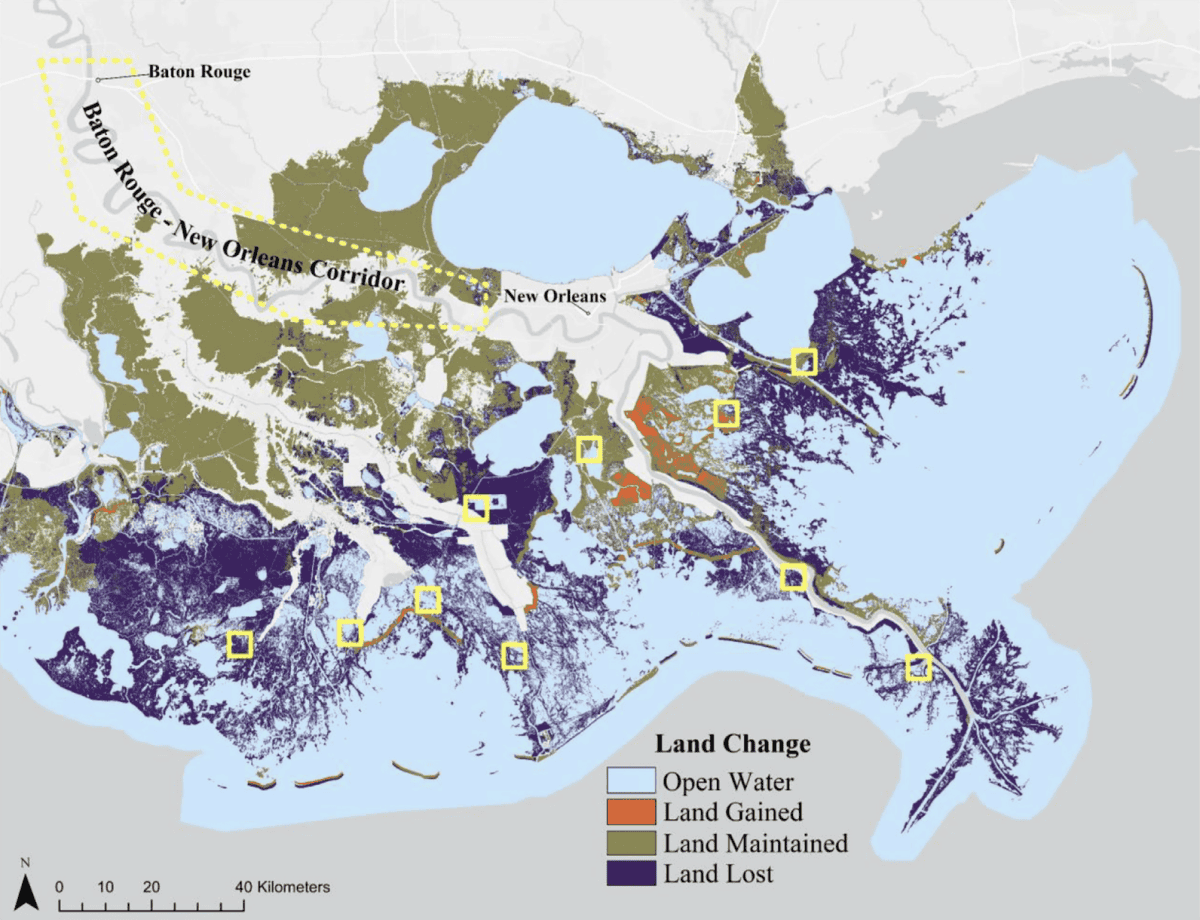
Dr. Barry Keim and Dr. Vincent Brown, researchers with the Southern Climate Impacts Planning Program, recently published a study in One Earth exploring how threats posed by climate change could impact the Mississippi River Delta (MRD). Over the past century, > 25% of the MRD’s wetlands have been lost due to flood control levees, pervasive alteration of the natural landscape, and subsidence coupled with sea-level rise. Climate change has and will continue to intensify the four major climate threats to the MRD: sea-level rise, extreme precipitation, increasing river discharge, and tropical cyclones. In “Emerging climate threats to the Mississippi River Delta: Moving from restoration to adaptation,” the authors review observed and potential future changes in the main climate stressors and argue that a course change, moving from restoration to adaptation, is needed to protect the functionality of the MRD against accelerated change.
Five adaptation measures are proposed, and the findings are placed into the context of global deltaic restoration: defining defensive baselines, diverting river water into the deltaic plain, protecting the crucial river corridor between Baton Rouge and New Orleans, strengthening protection for New Orleans, and sustaining the fishing industry. Under current management plans, the authors argue that New Orleans could suffer another catastrophic event (levee failure, extreme precipitation, or major hurricanes) that would cause dramatic economic effects across the entire state of Louisiana. Since the MRD is one of the largest deltas in the world, managers have the opportunity to be more adaptation-focused and set an example for the rest of the globe.
Read the paper here, or click the button below.
